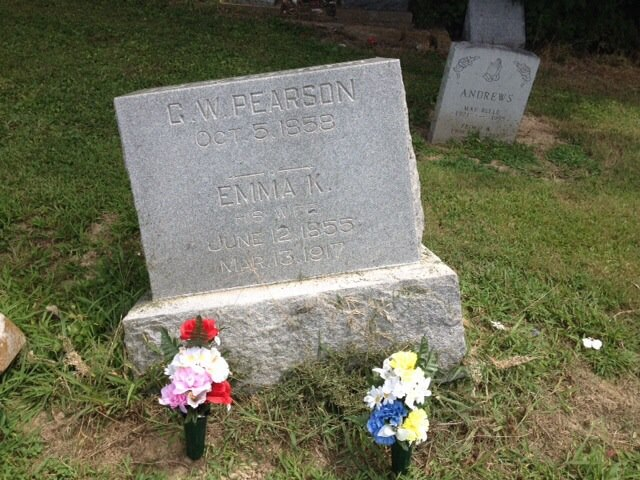(TenKley family with youngest 6 children, top. Winkel family, bottom)
My paternal Grandma was 100% Dutch, no question. Her mother and her father were born in the old country and came with their parents and siblings in the years just before Ellis Island opened to immigrants. Both Peter Winkel and Elsje TenKley were quite small on their respective journeys, and very likely anything they knew of their homeland would be gathered from stories of their parents and for Elsie, her older siblings.
The Winkels’ name translates to “shop” or “shopkeeper” and the name often had either a prefix or suffix indicating what type of shop or trade the family was engaged in. There is scant evidence that Peter’s grandfather may have used the name “SlotWinkel” but he seems to have been the only one, and this moniker indicates he may have been a locksmith. Certainly within the realm of possibility. His son, Peter’s father Dirk Winkel, worked as a shoemaker. In the words of Pete as an adult, “Why father came to U.S., caste system. Made shoes, not wooden ones. Manufacturing concerns began making shoes, put him out of business, nothing but repair work.” My aunt owns two pairs of wooden shoes made by Peter, so even if his father didn’t make a living making shoes from wood, I imagine he had the skill.
Peter and his two brothers had been born in Hattem, Gelderland, and when he was three years old and his brothers two and just three months, left Hattem and journeyed to Rotterdam, leaving the Netherlands in June 1886. They came on the ship W.A. Scholten and the passenger list states Dirk is coming to work and that his wife Dirkje, listed by her maiden name Bosch, is coming to join family (her brother Jan Berend settled in Minnesota, but she seems to have had another brother who died shortly after their arrival, wrote Peter). The WInkels settled shortly after their arrival in West Branch Township, Sioux County, Iowa (this is not the Iowa town of West Branch where President Herbert Hoover was born, across the state). While Peter and his family later moved to Sioux City, the path from Holland to Sioux County seems to have been firm and lasting for several decades.
The history of Elsje TenKley’s ancestors had been documented by a few of Grandma’s cousins and was passed to me, and I have added as I’ve been able. The “Kley” or “Kleij” part of the name means loam soil or clay, and many of the men of this line who can be traced back to about 1700, worked as schippers or polder builders. The Netherlands is a small area with many swaths reclaimed from the sea, and the oldest Ten Kleys were certainly involved in these endeavors.
From my Grandma;s cousin Peter TenKley: “Grandfather Derk TenKley was a schipper of commodities by waterway. By this trade he made a meager living hauling cargo from one city to another by barge or houseboat … a living hauling grains, fuel, turf or whatever he could transport by water, possibly even livestock.” It is said that most of the 8 of Derk and Maggie’s 10 living children were born on their houseboat.
The family made the decision to emigrate in 1884, and cousin Peter wrote many years ago that the parents sent oldest daughter WIllempje (Minnie) to school to learn some English before their departure. This interests me, since per my Grandma, a member of the next generation, they had no English until they started school. Perhaps I’ll explore that further in another post.
The TenKleys lived in Baltic, Connecticut for about 2 years before traveling west to Orange City, Iowa, but they did not stay there (they moved on to North Dakota and briefly to Missouri before returning to Iowa). Orange City had been established between the 1860’s-70s by Henry Hospers, a Dutchman moving westward from the previous settlement of Pella, Iowa (established in the late 1840s by Reverend Scholte and his followers).
From the reading I’ve been doing, both the financial stresses and at least some religious division were both at play in 1880’s Holland. I’m certain that the wide open plains of Iowa and the Dakotas were also tempting to Dirk and Dirkje Winkel and Dirk and Margie TenKley. Dirk Winkel lived to be 96 years old, and Dirk TenKley was described in !910 as a “well to do farmer.” I would say that they chose well.






No comments:
Post a Comment